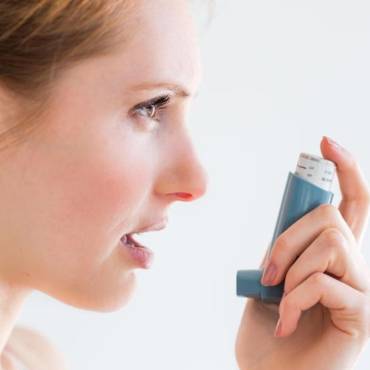Whether you have asthma for many years or you have only recently been diagnosed, there are some things you can do to help improve your chances of staying well. It is necessary to know about asthma and how the most common asthma medications work to deal with this condition. Also, recognizing your triggers and using tricks and tips in your daily routine can help keep you well.
Asthma – basic facts
Asthma is a condition that affects the airways in the lungs, causing them to swell, which in turn narrows the tubes that air passes through. You may experience wheezing, shortness of breath, and chest tightness. Airways of an asthma patient can be inflamed even when a patient feels fine. If airways in the lungs become so narrow that a patient has difficulty breathing, it is called an asthma flare-up or asthma attack. An asthma attack can happen at any time, even when you are asleep. Signs of asthma may differ from patient to patient, and signs of asthma in adults can vary from those in children. In any case, consulting a doctor is important for treatment and the right cure for asthma.
Asthma management can be done with the right care and medicines. Administering prescribed asthma relief medicine can prevent chronic asthma attacks.
Track asthma symptoms
Noticing signs and symptoms helps in asthma prevention. Regular tracking of symptoms will help you to find when you need to make treatment adjustments according to your health plan. Consider your asthma diary to note:
-
- Shortness of breath or whistling sounds when you exhale
- Tightness in the chest or pain
- Trouble sleeping caused by coughing, shortness of breath, and wheezing
- Occurrence of asthma symptoms during an exercise session
- Symptoms of hay fever include a runny nose and sneezing
- Anything that seems to trigger an asthma attack
- Change the color of the phlegm you cough up
- When using a quick-relief inhaler such as albuterol, write how many puffs you have taken
Lungs functioning
Your physician may provide periodic results of lung function or breathing tests. If your lungs are not working properly as they should be, your problem may not be controlled.
Following are the two main lung function tests:
-
- Spirometry –Your physician performs this at his clinic with the help of a spirometer machine. After consulting your physicians, you may also use a hand-held spirometer to take measurements at home.
The instrument measures how much air your lungs can hold and how much you can exhale in one second after taking a deep breath. This measurement can be called forced expiratory volume (FEV).
-
- Peak flow –This peak flow test can easily be performed at home with a simple hand-held device called a meter. A peak flow measurement indicates how rapidly you can force air out of your lungs. The readings of a peak flow are sometimes gauged as a percentage of how your lungs work at their best, and this can be called your personal nest peak flow.
In case of doubt, your doctor may perform specific asthma tests if needed.

Asthma treatment
An effective asthma treatment needs routine tracking of asthma symptoms and finding how well your lungs function. Participating actively in breathing treatment for asthma will help you maintain and prevent asthma attacks that last for a long time and avoid long-term problems.
Try to make an action plan with your doctor. This written health plan will guide your self-management efforts. The plan helps you recall instructions for care given by the physician and reminds you that adherence will help you achieve the desired results. Tailor the self-management approach to the needs and literacy levels. Follow important steps and keep a detailed diary of normal or allergic asthma treatment.
Adjust treatment according to your asthma condition
When you realize that your lungs are not functioning properly, you may require adjusting your asthma medications according to the written health plan you made with your health care provider. Your health plan will help you know exactly when and how to adjust when you need more asthma care.
Asthma medication
-
- Long-term control medications include inhaled corticosteroids, the most important medications for controlling These medicines treat the inflamed airways in the lungs, which are responsible for causing normal and severe asthma symptoms. Regular use of asthma medicine can reduce or even eliminate asthma flare-ups.
- Quick-relief inhalers –These are fast-acting medications and are sometimes called rescue inhalers. Its administration quickly opens your airways and makes breathing easier.
Make sure that you use your asthma medicine properly. Ask your doctor for the best medicine for asthma cough if you have cough symptoms.
Correct use of asthma medications will help keep your asthma under control.



